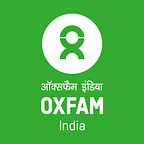#DalitLivesMatter, #Women’sLivesMatter
If the news in the last few days hasn’t boiled your blood, nothing ever will.
Badaun, Unnao, Azamgarh, Lakhimpur Kheri, Gorakhpur, Hathras, Balrampur, Bhadohi — it is just one bad news after another. They are no longer just districts and towns in Uttar Pradesh, they each have a violent story to tell. Of rape. Of gang rape. Of gut wrenching assault on our girls. Of sheer brutality. Of utter lawlessness. And of complete helplessness.
By the time the country could grapple with the Hathras rape case and wrap their heads around the hapless parents begging to see their child one last time as they burnt her body at midnight, three more girls were gang raped and left to die.
As if rape wasn’t enough, the brutality that follows — gouging out the eyes, slashing of the tongue, breaking bones and the spine, beaten with bricks, stones and rods, strangulating, singeing the body with cigarette butts, and then left to die or paralysed for life — is absolutely mind numbing.
The emotions best described by a friend who messaged — she was insanely angry and immensely sad at the same time.
What do these incidents have in common?
All dalit girls raped and brutally assaulted and killed by upper caste men.
It also says that if in a country you stand at an intersection of gender and caste, you are an easy prey. You are there to be disgraced, raped, assaulted and killed. And if this is not enough here is a bit of statistics: nearly 3500 dalit women were raped in 2019 with one-third cases reported from Uttar Pradesh and Rajasthan.
You could be on your way to college like the girl in Balrampur or out in the fields to work like the girl in Hathras or relieve one self like the girl in Bhadohi; You could be the three year old in Lakhimpur Kheri or the eight-year-old raped by your 20-year old neighbour like the child in Azamgarh.
The rushed burning of the body of the Hathras girl — who now the police claims wasn’t raped — is a fierce reminder that if you are a dalit and a woman you cannot question those in power and the system or expect justice.
“The way we imagine discrimination or disempowerment often is more complicated for people who are subjected to multiple forms of exclusion”[1] Kimberlé Crenshaw[2]
Now more than ever it has dawned on us that being a dalit and a girl, singularly positioned at the bottom of India’s caste, class, and gender hierarchies, will be attacked and violence inflicted upon her as a warning to the community. Each time a girl is raped, her body slit and stoned, it is an assault on the entire community.
The girl from Hathras belonged to Balmiki caste most of who work as manual scavengers. It is well-known how manual scavengers are treated in this country. The accused in the Hathras case are from the Thakur community. There have been so many instances in the past when the upper caste Thakurs to punish the dalits have simply raped their women. The tongue was perhaps cut off to silence the girl so that she would never raise her voice. The girl did tell her story but succumbed to the brutal assault.
Way back in 1947–50s Babasaheb had realised dalit women face different challenges than women in higher castes since they are more likely to be poorer, uneducated and socially marginalised. It remains true today as Badaun, Unnao, Azamgarh, Lakhimpur Kheri, Gorakhpur, Hathras and all others unfold.
Each time a girl is raped is a reminder that we live in a country that is blind to gender and caste brutalities. The power structures are such that it is perhaps easier to drag a poor dalit girl away in broad daylight as she works with her mother in the field. It is even easier to cremate her body without her family’s consent completely ignoring a mother’s shrill cries and denying her the right to see her child one last time. Each time a dalit girl raped will have a tongue cut will not only to silence her but her whole community.
If this is not our George Floyd moment then what is… ?
[1] https://feminisminindia.com/2018/11/23/intersectional-feminism/
[2] Advocate and a professor of law at Columbia Law School & the University of California
